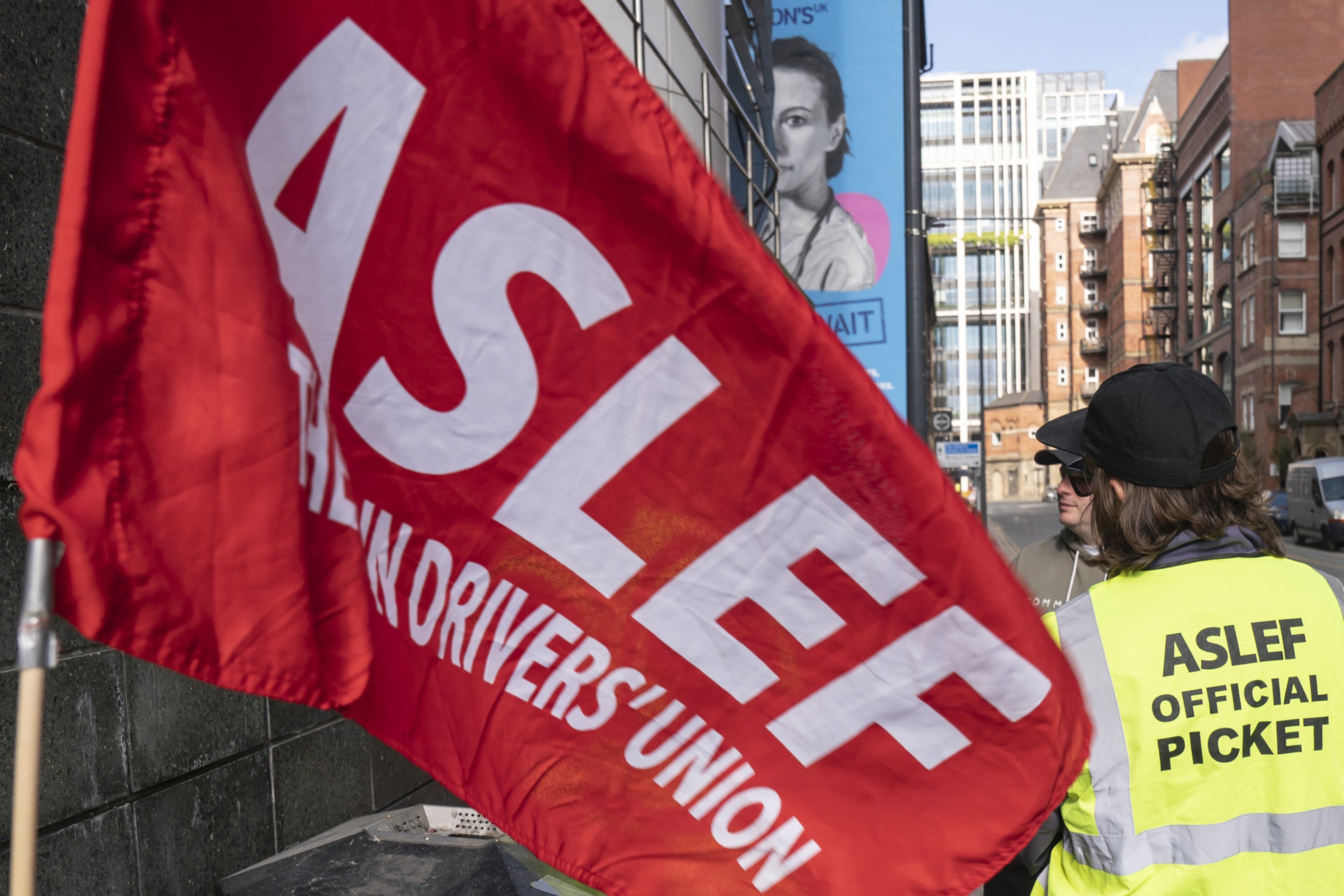How the rail strikes unfolded over two years
Aslef members have staged 18 days of strikes since the dispute started.

Your support helps us to tell the story
From reproductive rights to climate change to Big Tech, The Independent is on the ground when the story is developing. Whether it's investigating the financials of Elon Musk's pro-Trump PAC or producing our latest documentary, 'The A Word', which shines a light on the American women fighting for reproductive rights, we know how important it is to parse out the facts from the messaging.
At such a critical moment in US history, we need reporters on the ground. Your donation allows us to keep sending journalists to speak to both sides of the story.
The Independent is trusted by Americans across the entire political spectrum. And unlike many other quality news outlets, we choose not to lock Americans out of our reporting and analysis with paywalls. We believe quality journalism should be available to everyone, paid for by those who can afford it.
Your support makes all the difference.Leaders of the train drivers’ union Aslef have received a new offer from the Government in a bid resolve its long-running pay dispute.
Industrial action by both Aslef and the Rail, Maritime and Transport (RMT) union over the last two years became the longest ever in the railway industry.
The Transport Salaried Staffs’ Association (TSSA), which represents workers in the transport and travel industries, has also had its members stage walkouts before accepting offers from train companies in February 2023.
Aslef members have staged 18 days of strikes since the dispute started.
Here the PA news agency runs through a timeline of how the train strikes unfolded:
– June 2022RMT members stage their first walkouts in a dispute over pay, jobs and conditions on June 21, 23 and 25.
– July 2022Aslef members go on strike for the first time on July 30.
– October 2022RMT and Aslef members, joined by those from the TSSA, take industrial action together on October 1.
Aslef members stage another walkout shortly afterwards on October 5, as do RMT members on October 8.
– December 2022RMT members stage a series of strikes throughout the month, including on December 13 and 14, 16 and 17 and from Christmas Eve to December 27.
– January 2023RMT members take strike action on January 3, 4, 6 and 7, while Aslef members stage a walkout on January 5.
– February 2023Aslef and RMT members go on strike on February 1 and 3.
TSSA members vote overwhelmingly in favour of deals from train companies on February 24 which include a two-year pay rise worth 9%.
– March 2023Strike action announced by RMT members for March 30 and April 1 is suspended.
– April 2023Aslef announces its members have rejected a Government pay offer thought to include successive pay rises of 4%, taking the average annual pay for a train driver to around £65,000.
– May 2023Aslef members take strike action on May 12 and 31, while RMT members go on strike on May 13.
An overtime ban for Aslef members was also in force on May 13 and for five consecutive days from May 15 to 20.
– June 2023RMT members walk out on June 2 and Aslef members follow suit on June 3.
An overtime ban for Aslef members was in force on June 1.
– July 2023Industrial action affected National Rail services on various dates in July.
RMT members take three days of strike action on July 20, 22 and 29.
Aslef members take action short of a strike by withdrawing from working overtime, affecting some train operators from July 17 to 22.
– August 2023Aslef members withdraw from working overtime once more from Monday July 31 to August 5 and August 7 to 12 August.
RMT members go on strike on August 26.
– September 2023Aslef members go on strike on September 5 and 30. RMT members stage a walkout on September 2.
– October 2023Aslef members take strike action on October 4.
– November 2023RMT members vote overwhelmingly to accept a deal from the Government to end their dispute, with the resolution confirmed on November 30.
The settlement was understood to include a backdated pay rise of 5% for the previous year and job security guarantees such as no compulsory redundancies until the end of 2024.
– December 2023Aslef members resume their industrial action with a series of walkouts across different rail operators on different days from December 2 to 9.
An overtime ban was also in place by members for all affected operators from December 1 to 9.
TSSA members at select operators also stage two 48-hour strikes on December 13, 14, 16 and 17.
– January 2024Aslef members again stage a series of walkouts across different rail operators on different days from January 30 to February 5.
– April 2024Aslef members go on strike at most national rail operators grouped over three days, April 5, 6 and 8.
An overtime ban was also in place from April 4 to 6 and April 8 and 9.
Planned strike action by London Underground train drivers on April 8 and May 4 is called off.
– May 2024Aslef members take strike action for three consecutive days from May 7 to 9.
An overtime ban was in place by members from May 6 to 11.
– July 2024Aslef announces on July 17 that the Government is to hold fresh talks with the union in a bid to resolve their pay dispute, voicing hopes of “constructive” talks.
– August 2024Aslef announces its members are to vote on a new pay offer tabled by the Government.